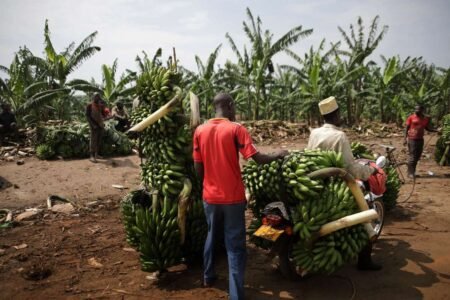The European Union sets out guidelines with a view to promoting compliance with international humanitarian law in its relations with third countries.
Advertisement
ACT
European Union Guidelines on promoting compliance with international humanitarian law [Official Journal C 327 of 23.12.2005].
SUMMARY
Founded on the principles of freedom, respect for human rights and the rule of law, a key objective of the European Union (EU) is to promote compliance with international humanitarian law.
The purpose of these Guidelines is to set out the tools available to the EU and its institutions and bodies to promote compliance with international humanitarian law by third countries and non-State actors operating in these countries.
International humanitarian law
International humanitarian law, also known as the Law of Armed Conflict or the Law of War, aims to protect those who are not, or are no longer, taking part directly in the hostilities. It also aims to restrict the means and methods of warfare. Based on international conventions and customary international law, international humanitarian law is applicable to any armed conflicts, international or internal, and to situations of occupation arising from an armed conflict.
This characteristic distinguishes it from international human rights law, which is applicable to everyone within the jurisdiction of the State concerned in peacetime as well as in time of armed conflict. However, these two sets of rules may both be applicable to a particular situation.
Certain serious violations of international humanitarian law are defined as war crimes. In this case, individuals bear personal responsibility. States must ensure that alleged perpetrators are brought before national or international tribunals (international criminal court ICC).
Operational guidelines
In order to enable effective action, the Guidelines provide for the preparation of reports, assessments and recommendations for action, and in particular for:
- identifying situations where international humanitarian law is applicable by the responsible EU bodies. This includes consultations with the International Committee of the Red Cross (ICRC) and the United Nations and drawing on the services of the International Humanitarian Fact-Finding Commission (IHFFC). Where appropriate, these bodies must define and recommend actions to promote compliance with international humanitarian law;
- including the assessment of the international humanitarian law situation in the reports about a State or conflict by EU Heads of Mission, Heads of Civilian Operations, Commanders of Military Operations and Special Representatives. Where feasible, these reports should also include an analysis and suggestions of possible measures to be taken by the EU; informing the Council Working Group on International Law (COJUR) on situations where an armed conflict may be at hand. If necessary, COJUR could be tasked to make suggestions of future EU action.
The EU has several means of action at its disposal in its relations with third countries, with a view to promoting compliance with international humanitarian law:
- political dialogue, both in the context of armed conflicts and in peacetime;
- general public statements, emphasising the need to ensure compliance with international humanitarian law;
- démarches and public statements condemning violations of international humanitarian law in the context of a conflict;
- restrictivemeasures and sanctions against the parties to a conflict;
- cooperation with other international bodies, especially the United Nations, the relevant regional organisations and the ICRC;
- crisis-managementoperations, especially by collecting information of use for the ICC or in other investigations of war crimes;
- promotion by the EU of combating impunity for war crimes and encouragement of third countries to enact penal legislation to punish violations of international humanitarian law;
- training and education in international humanitarian law, especially for law enforcement officials and military personnel, and the financing of programmes for training and education in international humanitarian law in third countries;
- the granting licences for the export of arms to an importing country. The European Code of Conduct on Arms Export provides that an importing country’s compliance with international humanitarian law should be considered before licences to export to that country are granted.
Background
These Guidelines are complementary to the Councils Common Position on the ICC and the EU guidelines and policies on human rights dialogues, torture, children and armed conflict and defenders of human rights.


